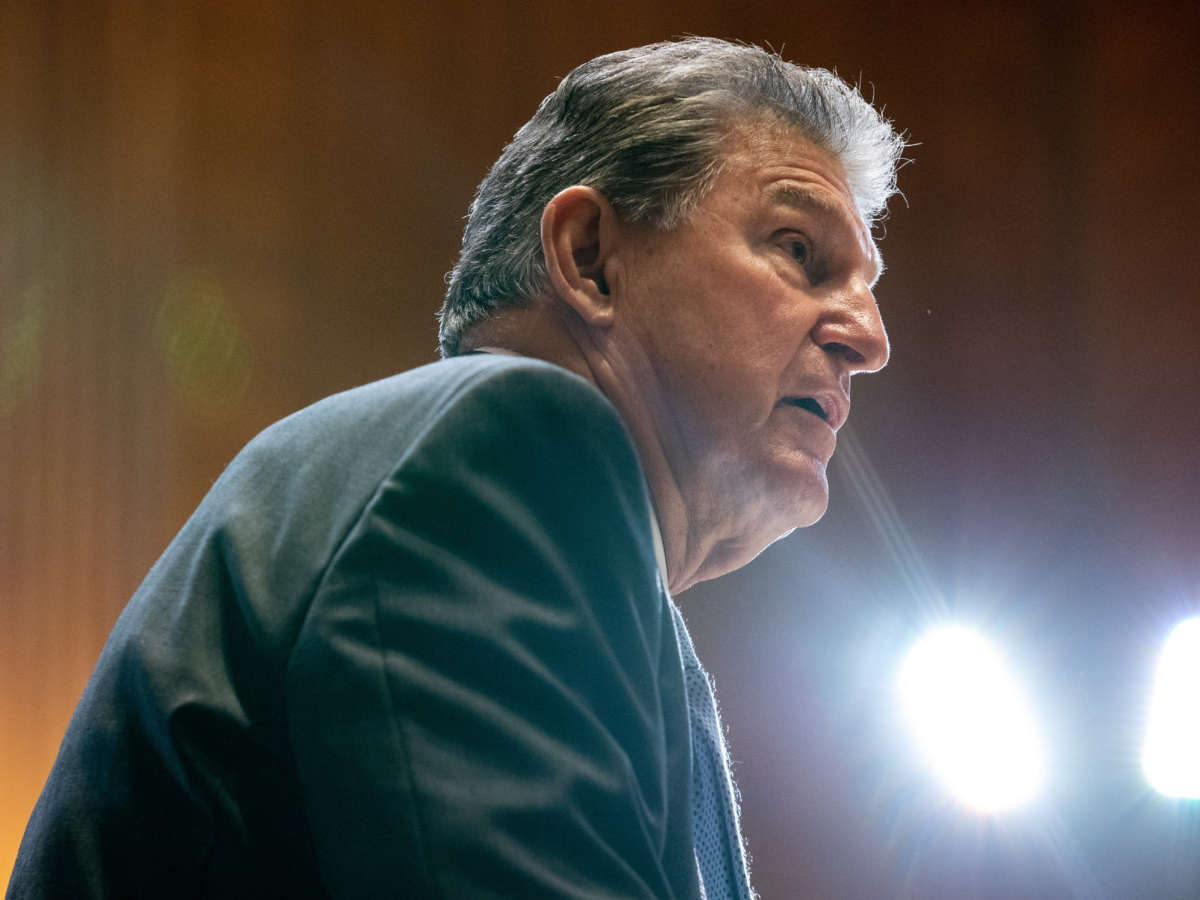The day after a horrific school shooting in Uvalde, Texas, in which 19 children and two adults were killed on Tuesday morning, Sen. Joe Manchin (D-West Virginia) told reporters that he supports passing legislation to reform gun laws in the U.S. — unless doing so will require getting rid of the filibuster.
Manchin has consistently defended the filibuster over the past year and a half, even as it was repeatedly used by Republicans to sabotage the Democratic party’s entire legislative agenda, including the Build Back Better Act.
Shortly after the Uvalde shooting, Manchin expressed dismay that Republicans in the Senate wouldn’t join him and his Democratic colleagues to pass “common sense” gun legislation. For any gun reform bill to pass in the Senate, it would likely require the backing of all 50 Democrats, plus 10 Republicans, without being blocked by the filibuster.
“It makes no sense why we can’t do common sense things to try to prevent some of this from happening. It’s just unbelievable how we got here as a society,” Manchin told reporters.
But the right-wing Democrat continued to defend the filibuster, claiming it is “the only thing that prevents us from total insanity,” despite the fact that Republicans will likely employ the rule to block any proposed gun legislation from passing.
“You know where I stand,” Manchin added, referring to his stance on changing filibuster rules.
Although Senate Majority Leader Chuck Schumer (D-New York) has expressed support for bringing a vote on gun measures to the Senate floor, he told his colleagues on Tuesday not to expect one any time soon, as it would likely be blocked by a Republican filibuster.
Manchin has refused to budge on the filibuster several times since President Joe Biden was inaugurated in January 2021. He has repeatedly expressed his opposition to proposals to change filibuster rules in order to pass legislation that would have blocked Republican state lawmakers from disenfranchising voters.
Democratic insiders have said that Manchin has seemed open to reforming the archaic Senate rule in past negotiations, only to abruptly change his mind soon after.
“You think you’re just about there. You think you’ve got an agreement on most of the things and it’s settling in. And then you come back the next morning and you’re starting from scratch,” a Democratic source said to Axios in January, describing the process as akin to “negotiating via Etch A Sketch.”


